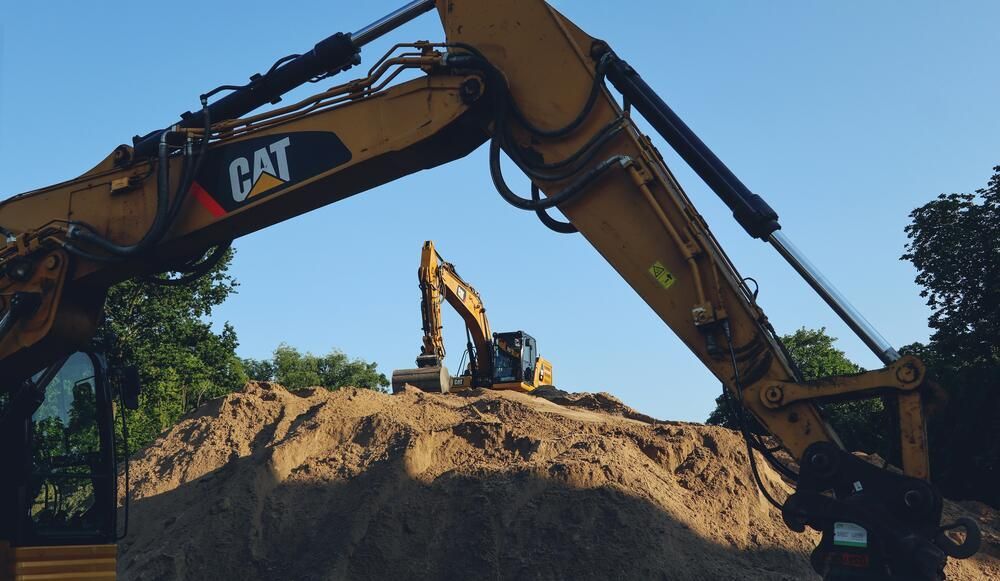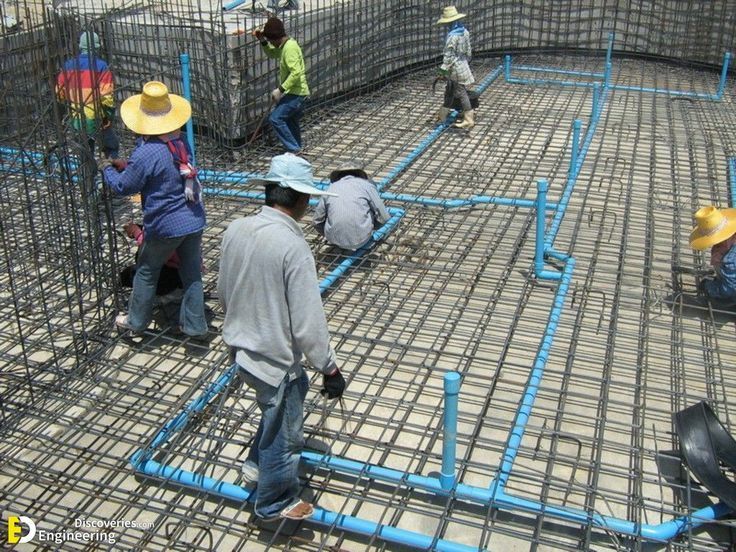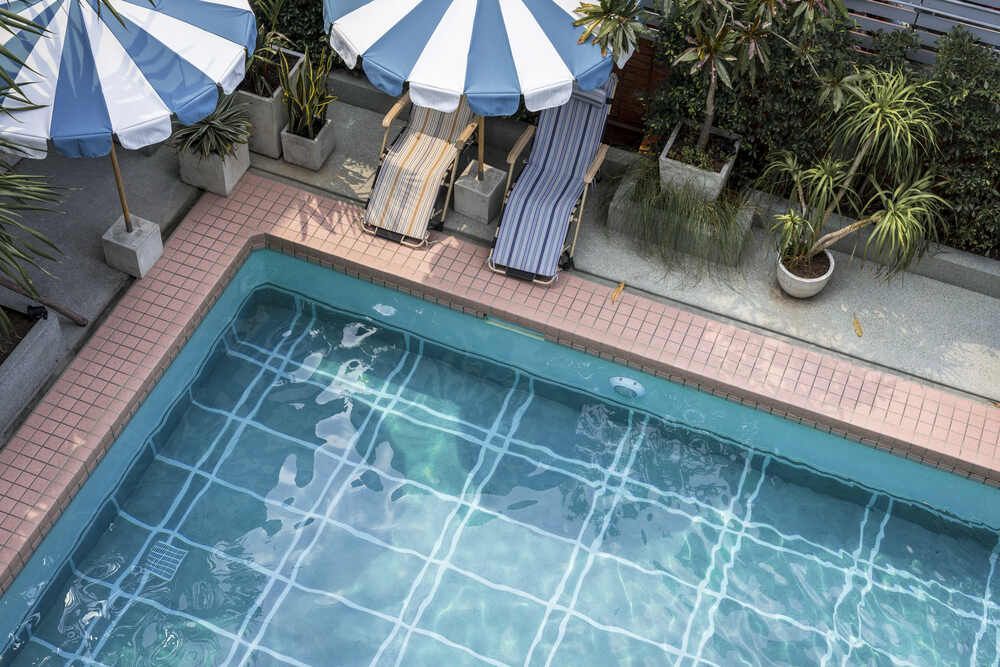7 Secrets Swimming Pool Maintenance Professionals Use for Crystal-Clear Water Year-Round

Maintaining crystal-clear pool water year-round can be daunting, but with the right techniques, it's entirely achievable. Professional swimming pool maintenance experts rely on specific strategies to keep the water clean and inviting, regardless of the season. With the U.S. pool market projected to grow to USD 10.33 billion by 2029, it's clear that more homeowners are investing in proper pool care, making expert maintenance even more essential.
Here are seven of the most effective practices by professionals to help maintain your pools.
Table of Contents
Key Takeaways
1. The Right Balance of Chemicals is Key
2. Regular Brushing and Vacuuming Keep Algae at Bay
3. Keep the Filters Running Efficiently
4. Shock Treatment for a Crystal-Clear Boost
5. Skimming the Pool Daily for Debris-Free Water
6. Maintaining Water Levels for Consistent Performance
7. Inspect and Maintain Pool Equipment Regularly
How to Choose the Right Swimming Pool Maintenance Professionals
Frequently Asked Questions (FAQs)
Keep Your Pool Pristine with FJV Construction's Swimming Pool Maintenance Near Me
Key Takeaways
✔ Maintaining balanced chemicals is essential for keeping your pool water clear and safe.
✔
Regular brushing and vacuuming help prevent algae buildup and keep surfaces clean.
✔
Efficient pool filtration is crucial for removing debris and maintaining water clarity.
✔
Shock treatments are vital for killing bacteria and boosting water clarity after heavy use.
✔
Daily skimming prevents debris from sinking and clouding the water.
✔
Keeping water levels steady ensures your filtration system works efficiently.
✔
Regular equipment maintenance prevents costly repairs and keeps the pool functioning properly.
✔
Choosing the right service for swimming pool maintenance near me guarantees consistent care and long-term water quality.

1. The Right Balance of Chemicals is Key
Proper chemical balance is the first step to achieving clean, clear water in swimming pool maintenance. Without the right levels, the water becomes cloudy, becoming a breeding ground for bacteria. Professionals rely on precise chemical control to maintain healthy water throughout the year.
Chemicals that Maintain Water Clarity
- Chlorine: Chlorine is the primary sanitizer in swimming pool maintenance, killing bacteria and algae. Maintaining levels between 1-3 parts per million (ppm) ensures the pool stays clean without causing irritation.
- pH Adjusters: pH levels should remain between 7.2 and 7.6 for clear, balanced water. Professionals use pH increasers or reducers to maintain this range, preventing issues like cloudy water or corrosion.
- Alkalinity Stabilizers: Total alkalinity helps stabilize pH levels, preventing sudden changes. Experts keep alkalinity between 80-120 ppm to ensure the pH remains steady, which is crucial for crystal-clear water.
How Swimming Pool Maintenance Professionals Test Water Chemistry
- Weekly Testing: Pool professionals test water at least once a week to ensure balance. Regular testing helps them catch and adjust imbalances before they cause problems.
- Digital Testers: Many professionals use digital testing kits for precise measurements of pH, chlorine, and alkalinity. These tools provide more accuracy than standard test strips, ensuring the perfect chemical balance.
- Shock Treatments: After heavy use or storms, professionals perform shock treatments to boost chlorine levels and kill bacteria. This step is essential for keeping water crystal clear in busy pools.
2. Regular Brushing and Vacuuming Keep Algae at Bay
Algae can quickly turn a pool from clear to green if not managed properly. Swimming pool maintenance professionals know that physical cleaning is just as important as chemical treatments. Regular brushing and vacuuming keep surfaces clean and algae-free.
Tools for Surface Cleaning
- Pool Brushes: Different pool surfaces require specific brushes for effective cleaning. Nylon brushes are used for vinyl and fiberglass, while stainless steel brushes are perfect for tough plaster surfaces.
- Automatic Vacuums: Automatic pool vacuums clean the pool floor continuously. These vacuums save time and ensure debris is constantly removed, helping keep the water clear.
- Manual Vacuuming: In areas where automatic vacuums can’t reach, manual vacuuming is necessary. Professionals use this method for precise cleaning along edges and corners.
How Often Professionals Brush and Vacuum
- Daily Skimming: Professionals skim the surface of the pool daily to remove leaves, insects, and other debris. This prevents debris from sinking and affecting water clarity.
- Weekly Vacuuming: Vacuuming the pool at least once a week ensures debris is removed from the pool floor. Regular vacuuming keeps dirt and algae from settling and clouding the water.
- Brushing Twice a Week: Brushing the pool walls and floor twice a week helps prevent algae buildup. This routine is especially important in warmer climates, where algae growth can be more aggressive.

3. Keep the Filters Running Efficiently
The pool’s filtration system is the backbone of swimming pool maintenance. A clean and efficient filter removes dirt, debris, and microscopic particles that can cloud the water.
Types of Pool Filters
- Sand Filters: Sand filters are a popular choice for their ease of use and efficiency. Professionals backwash these filters regularly to remove trapped particles and keep water flowing smoothly.
- Cartridge Filters: Cartridge filters provide finer filtration and require less frequent maintenance. However, professionals clean them thoroughly when needed to maintain optimal filtration.
- DE (Diatomaceous Earth) Filters: DE filters are the most effective, filtering out the smallest particles. Professionals recharge DE filters by adding more powder after backwashing, ensuring top filtration performance.
How Professionals Maintain Pool Filters
- Backwashing: Backwashing removes debris from sand and DE filters. Professionals backwash as needed, especially after heavy pool use, to ensure the filter is running efficiently.
- Filter Cleaning: Cartridge filters require periodic cleaning to prevent clogging. Professionals disassemble and clean these filters to ensure that water can flow freely through them.
- Regular Inspections: Professionals inspect filters regularly for signs of wear and tear. Timely filter replacements prevent damage to the system and ensure water remains crystal clear.
4. Shock Treatment for a Crystal-Clear Boost
Shock treatments are essential for keeping water clean, especially after heavy use or storms. Swimming pool maintenance professionals rely on regular shocks to kill bacteria and break down contaminants that regular chlorine can’t handle.
What is Pool Shocking?
- Chlorine Shock: Chlorine-based shock treatments increase chlorine levels to kill bacteria and organic matter. Professionals use this method after pool parties or after a storm to ensure water clarity.
- Non-Chlorine Shock: Non-chlorine shocks use oxidizers to break down organic contaminants. This method is used when chlorine levels are high, but the pool still appears cloudy.
- Calcium Hypochlorite Shock: Cal hypo is a powerful shock used for serious algae blooms. Professionals use this for pools that need a strong chemical treatment to restore water clarity.
How Often Professionals Shock the Pool
- After Heavy Use: Pools that see a lot of use require shock treatments after busy days. Professionals know that shocking the pool eliminates the contaminants brought in by swimmers.
- Weekly Maintenance: Many professionals perform a weekly shock treatment as part of their routine swimming pool maintenance. This ensures water remains clear even without heavy use.
- Before the Off-Season: Before closing a pool for the season, professionals shock the water to prevent bacteria and algae growth during the off months. This makes reopening the pool in the spring much easier.
5. Skimming the Pool Daily for Debris-Free Water
Daily skimming is a simple yet effective strategy swimming pool maintenance professionals use to keep water clear. By removing leaves, bugs, and dirt from the surface, they prevent debris from sinking and affecting the pool’s chemistry.
Tools for Skimming
- Hand Skimmers: Handheld skimmers are used for manual removal of surface debris. Professionals use them daily to keep the pool’s surface clean and free of floating debris.
- Automatic Skimmers: Automatic skimmers work while the pool’s filtration system is running. These devices capture debris before it sinks, reducing the need for manual skimming.
- Leaf Nets: For pools with a lot of trees nearby, professionals use larger leaf nets to quickly remove heavy debris. These nets are efficient at capturing leaves before they sink to the bottom.
When Professionals Skim the Pool
- Morning Routine: Professionals typically skim the pool first thing in the morning to remove debris from the previous day. This ensures a clean start before swimmers use the pool.
- After Storms: Debris can accumulate quickly after storms, so professionals skim the pool immediately to prevent leaves and dirt from clogging the filter.
- Before Vacuuming: Skimming the surface before vacuuming allows professionals to remove floating debris that would otherwise sink to the bottom, making the pool easier to clean.

6. Maintaining Water Levels for Consistent Performance
Keeping water levels steady is crucial for the pool’s filtration system to work properly. Swimming pool maintenance professionals know that maintaining the right water level ensures efficient circulation and prevents equipment damage.
Why Water Levels Matter
- Pump Efficiency: The pump needs enough water to operate efficiently. If the water level drops too low, the pump can suck in air, causing it to overheat and break down.
- Debris Skimmers: Proper water levels allow surface skimmers to work effectively. When the water level is too low, debris remains on the surface, leading to cloudy water.
- Chemistry Balance: Low water levels can concentrate chemicals, throwing off the balance. Professionals monitor water levels to maintain the right chemical ratios for crystal-clear water.
How Professionals Maintain Water Levels
- Regular Refills: Professionals check water levels regularly, especially during hot weather when evaporation is high. They add water as needed to keep levels consistent.
- Monitoring Splash-Out: Pools with a lot of activity can lose water from splash-out. Professionals factor this in during busy days, refilling the pool to prevent low water levels.
- After Backwashing: After backwashing filters, water levels drop. Professionals always refill the pool after this process to ensure the filtration system continues to run smoothly.
7. Inspect and Maintain Pool Equipment Regularly
Swimming pool maintenance professionals understand the importance of equipment upkeep. Pumps, heaters, and filters must be in top shape to keep water clear and avoid costly breakdowns.
Essential Equipment Checks
- Pump Inspection: The pump circulates water, keeping it clean. Professionals inspect pumps regularly for leaks, overheating, or unusual noises, ensuring they function properly.
- Heater Maintenance: A malfunctioning heater can cause water temperature imbalances, affecting chemical levels. Professionals check heaters to ensure they operate efficiently, especially in cooler months.
- Filter Inspection: Regular filter inspections prevent clogs and damage. Professionals replace worn-out filters to keep water flowing smoothly through the filtration system.
How Often Professionals Inspect Equipment
- Monthly Equipment Checks: Monthly inspections help professionals identify potential issues early. Regular checks keep the pool running smoothly, preventing expensive repairs.
- Seasonal Maintenance: At the beginning and end of each season, professionals perform thorough equipment maintenance. This ensures the pool is ready for peak use in summer and protected during the off-season.
- After Heavy Use: Pools that see heavy use require more frequent equipment checks. Professionals know that frequent inspections help avoid breakdowns and keep water crystal clear year-round.
How to Choose the Right Swimming Pool Maintenance Professionals
Selecting the right swimming pool maintenance professionals in Danbury, CT, is crucial to ensuring your pool stays in top condition year-round. With so many options available, it’s important to consider several key factors when making your decision.
1. Experience in the Industry
Choose a swimming pool maintenance professional with a solid background in the industry. Experienced technicians understand common pool issues and know how to resolve them quickly and effectively. Ask about their years of service and any specialized training they’ve received.
2. Range of Services Offered
Look for a maintenance company that offers a comprehensive range of services. From chemical balancing to equipment repairs, the best swimming pool maintenance professionals handle all aspects of pool care. This ensures that you won’t need multiple providers for different tasks.
3. Certifications and Licenses
Always verify that the swimming pool maintenance professionals you hire are properly certified and licensed. These credentials show that they have received proper training and adhere to industry standards. Certification from recognized pool organizations adds an extra layer of assurance.
4. Customer Reviews and Testimonials
Check online reviews and ask for client testimonials before hiring a swimming pool maintenance provider. Satisfied customers are often a good indication of reliable service. Pay attention to feedback about punctuality, communication, and the quality of work.
5. Transparent Pricing and Contracts
The cost of maintaining a swimming pool varies based on the type of pool you own. Reputable swimming pool maintenance professionals will provide clear pricing and contract terms. Avoid companies that are vague about costs or unwilling to provide a detailed estimate. Knowing exactly what you’re paying for ensures no surprises down the line.
6. Availability and Response Time
Make sure the pool maintenance company you choose can respond promptly to your needs. Pools require regular care, and emergencies may arise. Professionals who offer flexible scheduling and quick response times are essential to keeping your pool in optimal condition year-round.

Frequently Asked Questions (FAQs)
How often should I check my pool’s water chemistry?
It’s recommended to check your pool’s water chemistry at least once a week. However, during periods of heavy use or extreme weather, it’s a good idea to test the water more frequently. Regular testing helps maintain the proper balance of chemicals, preventing algae growth and water cloudiness. Consistent monitoring ensures a safe and pleasant swimming experience for everyone.
What is the best time of day to run my pool filter?
The best time to run your pool filter is during the day when the sun is strongest, typically between 9 a.m. and 6 p.m. UV rays can deplete chlorine, so running the filter during daylight hours helps circulate chemicals more effectively. Experts recommend running the filter for 8 to 12 hours a day, depending on the size of your pool. This ensures optimal water clarity and helps prevent debris buildup.
How often should I replace my pool’s filter?
The lifespan of a pool filter depends on its type: sand filters last around 5 to 7 years, cartridge filters 2 to 3 years, and DE filters 1 to 2 years. However, regular cleaning and maintenance can extend their life. Signs that it’s time to replace the filter include frequent clogging, reduced water flow, and cloudy water. Replacing your filter on time ensures your pool’s water stays clean and clear.
Can I handle pool maintenance on my own, or should I hire a professional?
Basic tasks like skimming, brushing, and testing water chemistry can be managed by homeowners with the right tools and knowledge. However, for more complex tasks like equipment repairs, deep cleaning, or chemical adjustments, hiring swimming pool maintenance professionals is recommended. Professionals bring expertise that helps prevent long-term issues and costly repairs.
How do I prevent algae from forming in my pool?
Preventing algae starts with keeping the water chemistry properly balanced, especially pH and chlorine levels. Running the filter regularly and brushing the pool walls can also help stop algae from settling. Additionally, using algaecide as a preventive measure is something swimming pool maintenance professionals often recommend. Ensuring proper circulation and cleanliness will help keep algae at bay year-round.

Keep Your Pool Pristine with FJV Construction's Swimming Pool Maintenance Near Me
Ensure your pool stays clean, clear, and ready for use all year long with professional swimming pool maintenance near me from FJV Construction in Danbury, CT. Our experienced team takes care of all your pool maintenance needs, so you can enjoy crystal-clear water without the hassle. Trust FJV Construction to provide reliable, top-quality service that keeps your pool in peak condition.
Contact us today to schedule your next maintenance appointment.
Our Info
Monday to Friday from 7 am to 6 pm
Saturdays from 8 am to 5 pm
We Accept Cash and Checks
LOCATION
We Cover 80 Miles around Bethel,
Danbury, and Brookfield
Bethel, Connecticut 06801
Danbury, Connecticut 06810
Brookfield, Connecticut 06804
Navigation
Copyright FJV Construction, All Rights Reserved



